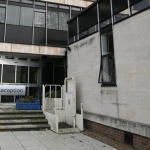The Met Police acted with “integrity” during its partygate investigation and officers made decisions “based on the facts and were proper”, the force’s acting commissioner has said.
Sir Stephen House, giving evidence to the London Assembly’s police and crime committee, defended the nearly four-month investigation into lockdown-breaking parties in Downing Street and Whitehall.
The investigation has come under criticism for only fining Boris Johnson once following the publication of the Sue Gray inquiry which revealed partying in Downing Street while COVID restrictions were in place.
Challenged over why the prime minister did not receive a fine for attending a leaving party for his former communications director Lee Cain on 13 November 2020, Sir Stephen said he was “confident of the integrity of the decisions” taken.
Photos of the gathering emerged two days before Ms Gray’s full inquiry was published.
Sir Stephen said officers had “looked at hundreds of documents, including emails, electronic door logs – in other words, people in and out at various times – diary entries, witness statements, photographs, CCTV images, and we sent questionnaires to people who we felt may have breached legislation”.
“The explanations that were given in the questionnaire were all considered carefully,” he said.
Boris Johnson urged by two more Tory MPs to step down over Sue Gray’s partygate report
Boris Johnson’s chief of staff brushes off partygate as reason ‘logical’ cost of living measures are on way
Partygate: Drunken fights and vomiting – but the Sue Gray report was a relief for Boris Johnson
“Some gatherings we decided were not work-related, and some we decided were work-related.”
The acting commissioner said fines were only issued in cases where officers were confident a conviction could be secured if challenged in court – something the Met explained when it concluded the inquiry last week.
He said they considered several aspects:
• The nature of the gathering
• Different phases of the gathering
• Amount of time spent there by a participant.
He added that detectives “critically, cross-referenced the evidence to identify whether the individual, on a full consideration of all the facts that we had, including their own account, did or did not have a reasonable excuse for his or her participation in the gathering”.
“If the case were taken to court, in other words, if we issued a fixed penalty notice and it was refused and somebody said no, I want to go to court, then we had the evidence that we thought would give us a realistic prospect of a conviction,” he added.
“I believe that the decisions that my officers made were based on the facts and were proper.”






















